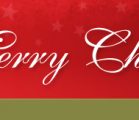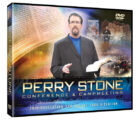Sunday May 5: 30 Aviv
Today is the final day of the month of Aviv and we are currently in the time of “counting the Omer.” The word, omer, is an unit of dry measure for things like grains and other dry commodities that was used in the era of the Sanctuary. It is estimated to be about 3.64 liters or something just shy of a gallon. One of the words used to translate omer is the word, “sheaf.” This is what was brought into the sanctuary on the first day of the week following Passover, otherwise known as the Feast of First Fruits. That is the day when we begin counting the omer and will continue until Shavuot or the Feast of Weeks, also known as Pentecost.
The first time we find this word “sheaf” used in the English translation of the Scripture is in the book of Exodus with the first appearance of the manna.
So when the children of Israel saw it, they said to one another, “What is it?” For they did not know what it was. And Moses said to them, “This is the bread which the Lord has given you to eat. This is the thing which the Lord has commanded: ‘Let every man gather it according to each one’s need, one omer for each person, according to the number of persons; let every man take for those who are in his tent.’” (Exodus 16: 15-16)
The people were to collect an omer of manna each day of the week, except for the sixth and seventh days. On the sixth day they collected a double portion, but not so that they could eat twice as much. The double portion collected on Friday was to sustain them through the next day, the Shabbat, when there would be no manna upon the ground. We could say that, each and every day, the children of Israel were given their “daily bread.” Interestingly, a Hebrew word related to omer is the word amar, which means “to speak” or “to say.” I believe this phonetic connection alludes to the fact that God, through the manna, was saying something to His people.
The first and most logical message was, the heavenly Father was their source for everything. He provided for the major things like liberation from bondage and the routine, and just as important, things like food and drink. But I believe there is something else He was saying through the manna. When the people asked, “What is it?” the Hebrew word translated as “it” can also be rendered, “he.” In other words, they asked, “What is He?” That question brings us to a time and place, 1500 years later, when Christ, speaking to a crowd of people, answered the question of their fathers in the wilderness. They had said, “What is it?” He said this:
“Most assuredly, I say to you, Moses did not give you the bread from heaven, but My Father gives you the true bread from heaven. For the bread of God is He who comes down from heaven and gives life to the world.” Then they said to Him, “Lord, give us this bread always. And Jesus said to them, “I am the bread of life. He who comes to Me shall never hunger, and he who believes in Me shall never thirst.”
As we count the omer we are reminded to ask our Father to speak to us and“give us this day our daily bread.” We also remember that man does not live by bread, alone, but man lives by every word that proceeds out of the mouth of Lord God. And so we pray that, on this day, He will speak to us and give us our daily bread from heaven, personified in the Messiah, the Living Word. For it is “in Him we live and move and have our being.”


